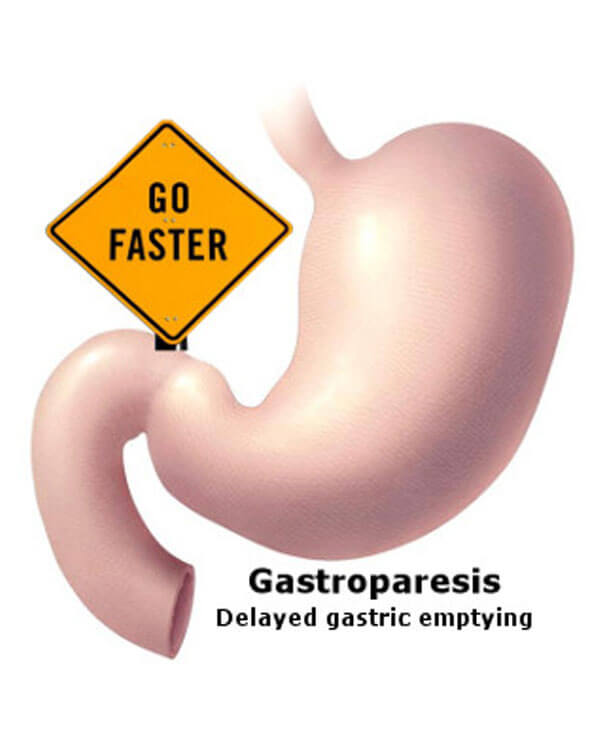When the food in the stomach takes longer to move out of it, the condition is called gastroparesis. The strong contractions of the stomach muscles push the food through the digestive tract and when there is delayed gastric emptying this process slows down or doesn’t work. The diabetic, especially of long duration, are more at risk of getting affected by gastroparesis. The other factors include damage to the vagus nerve due to previous interventions, viral infections, Parkinson's disease, and hypothyroidism.

A patient with this condition may suffer from symptoms such as nausea, vomiting, heartburn and reflux, pain and bloating of the abdomen, lack of appetite, a full feeling after eating minimal food and sometimes weight loss.

Treatment usually involves lifestyle changes such as quitting smoking and alcohol, eating smaller meals, reducing the consumption of fatty food, chewing food thoroughly and walks after meals. Medications to treat gastroparesis include Metoclopramide, Itopride, and Erythromycin to stimulate the muscles of the stomach and prochlorperazine, diphenhydramine and ondansetron to curb nausea and vomiting.Diabetic patients should have their sugar levels controlled. Botox injection into stomach wall or gastric pacemaker by endoscopy may be required in advanced disease which is not responding to routine medicines.


Our gastroenterology services treat all kinds of digestive system disorders. Book an appointment now with our GI Specialists and have the best team of doctors treating you!